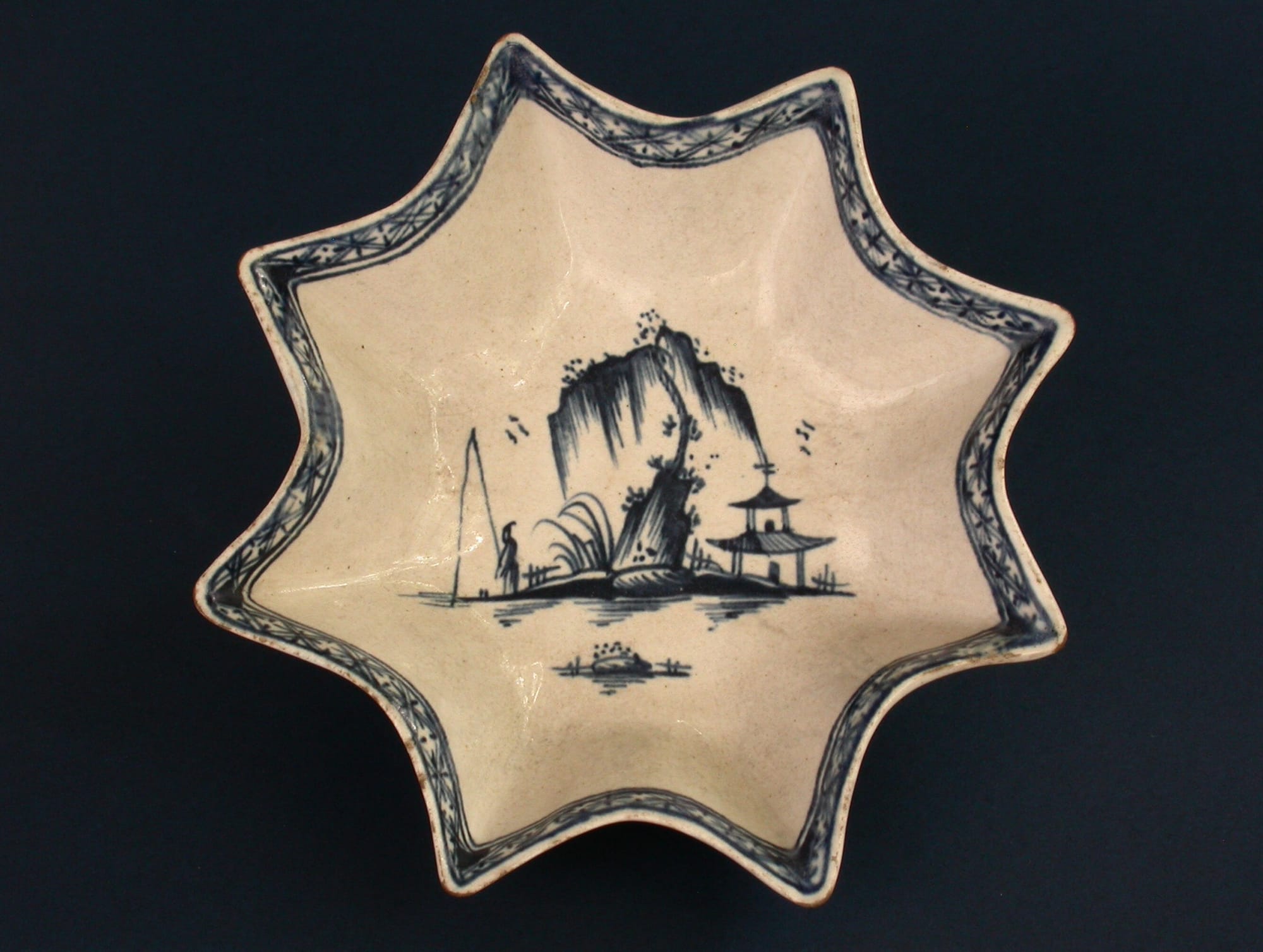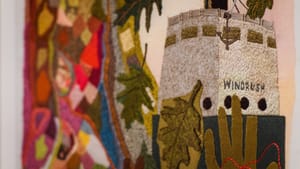Hampshire Cultural Trust has received funding from the National Lottery Heritage Fund to help reimagine the Allen Gallery and its nationally significant ceramic collection. As a part of this project, we are researching and discovering the collections’ untold stories.
This month's object is a pickle dish produced by Bonnin & Morris in 18th-century Philadelphia.
Between 1770 and 1772, Bonnin & Morris were one of the earliest porcelain manufacturers in America. Philadelphia was a thriving British colony at the time, twenty years earlier surpassing Boston as the most populous city and busiest port in America. This population growth led to a demand for consumer goods across the British Empire.
The British made themselves increasingly unpopular governors of the territory through increases in taxation for imported goods in the so-called Townshend Acts of 1767 and 1768. This was done in order to fund and maintain their own control of their colonies in America as they were increasingly aware of the calls for independence.
This period of unrest created an opportunity for manufacturers of goods within America. It was suddenly much more expensive to import goods such as the mass-produced British-made ceramics of Wedgwood. Gousse Bonnin and George Morris saw the gap in the market and were able to open their factory because of this cost-effectiveness.

Our pickle dish is an unusual eight-pointed star with a geometric blue border and a scene of a man fishing. It is one of a small number of known surviving pieces of Bonnin & Morris ceramic. The duo produced wares for such a short time span due to a combination of factors including tax reductions from the British, which made imported goods from the Empire much cheaper, a workers strike in their factory and a general inconsistency in the quality of ceramic that they produced.
Research conducted by Nicholas Panes for English Ceramic Circle in 2011 found that the dish's makers mark is consistent with Bonnin & Morris pieces in many American museum collections such as the Metropolitan Museum of Art and the Philadelphia Museum of Art. For a long time though, it was considered to have been made by Seth Pennington of Liverpool in the 1780s as the makers mark on the bottom of the dish is a blue 'P'. The 'P' on our dish is now understood to stand for Philadelphia instead. The credit to Pennington and Liverpool porcelain was made when the object came into the collection in 1943 as part of a large deposit from a Major Bignell. At the time, there was almost no documented history of these early American producers of ceramics and the connection to Bonnin & Morris could not have been made.
This object is currently in storage but the hope is that, because of its importance to our collection, upon the completion of the Allen Gallery project that it can once again be on display for the public to enjoy. Thanks to our Rediscovering the Allen Gallery project we have been revealing stories to do with our objects in storage as well as the ones currently our on display with the great help of our volunteers.
To read in greater depth about the rediscovered provenance of the pickle dish click here.
For more information about our rediscovering the Allen Gallery project, click here.






